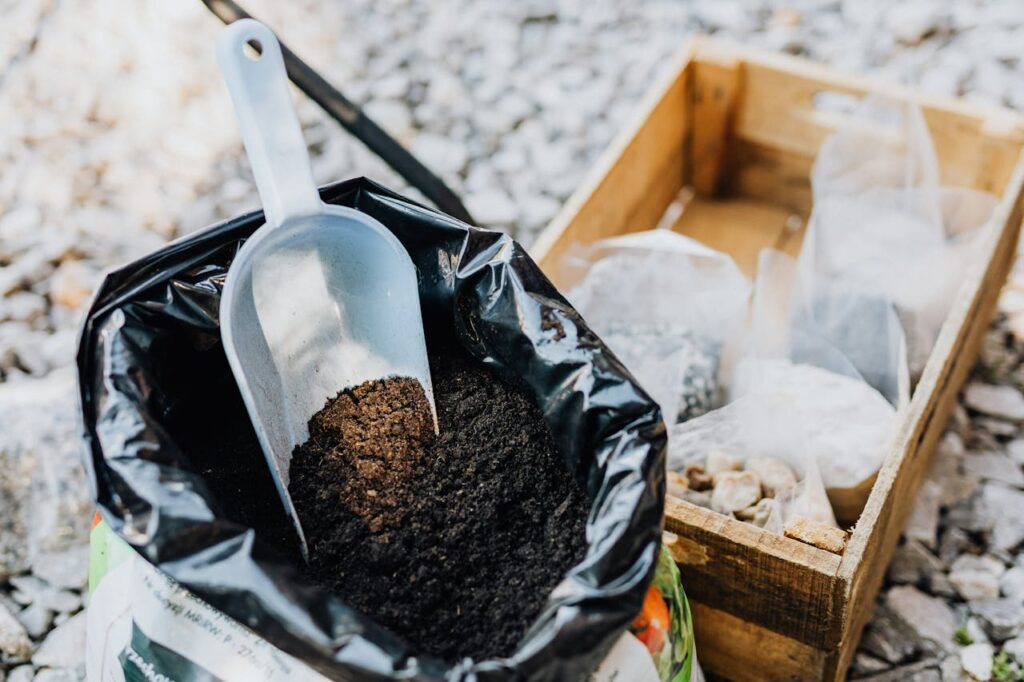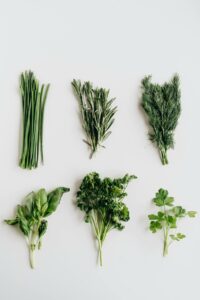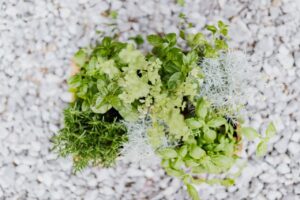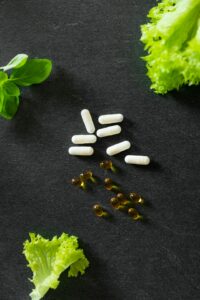Utilizing Organic Fertilizers for the Development of Herbal Plants

Utilizing Organic Fertilizers for the Development of Herbal Plants
Over the course of many centuries, herbal plants have been highly valued not just for their culinary applications but also for the medical and aromatic advantages related to them. It doesn’t matter whether you’re cultivating rosemary in your garden or basil on your balcony; one of the most essential components of keeping herbs in good condition is ensuring that they get the appropriate nutrients. Organic fertilizers, in contrast to artificial fertilizers, are designed to function in unison with nature, therefore enhancing the health of the soil while simultaneously supporting sustainable development.
In this article, we will discuss the ways in which organic fertilizers may improve the development of herbs, as well as the natural solutions that are the most effective and the best ways to incorporate them into your garden.
1. Why Fertilizers Are Necessary for Herbs
Herbal plants, just like any other kind of green plant, need certain nutrients in order to flourish. The presence of nitrogen encourages the development of leafy plants, phosphorus helps to build root systems, and potassium improves both taste and resistance to disease. On the other hand, when the soil gets exhausted or when herbs are cultivated in containers, it becomes necessary to provide them with extra nutrients. The use of fertilizers helps to maintain the lushness, taste, and therapeutic efficacy of herbs.
2. The Benefits of Using Organic Fertilizers Regarding Herbs
The use of organic fertilizers is safe and natural since they do not include any hazardous chemicals that might potentially diminish the therapeutic value of herbs.
Health of the Soil: They enhance the structure of the soil, which in turn increases its capacity to retain water and nutrients.
Long-Term Advantages: The nutrients are given gradually, which results in consistent feeding over an extended period of time.
They are environmentally friendly since they protect pollinators and limit the amount of chemical runoff, making them a sustainable option.
3. Organic Fertilizers That Are Commonplace for Herbs
- 3.1% Composting
- Compost, which is abundant in organic matter, enhances the fertility of soil, encourages the activity of microorganisms, and guarantees the availability of nutrients in a balanced manner.
- 3.2 Worm castings, also known as vermicompost
- Worm castings are very nutrient-dense, providing readily accessible nitrogen as well as helpful microorganisms that assist in the growth of herbs that are both more robust and more green.
- (Well-Rotted) Manure, Section (3)
- After being appropriately aged, dung from cows, horses, or goats may give a balanced nutritional profile. Because it has the potential to burn delicate plants, fresh manure should be avoided.
- The Bone Meal, 3.4
- In addition to being an excellent source of phosphorus, bone meal helps herbs like chamomile and lavender develop robust root systems and improve their blooming production.
- Fish Emulsion With a 3.5
- The nitrogen content of this liquid fertilizer is high, making it an excellent choice for growing leafy herbs such as basil, parsley, and cilantro. It encourages rapid development while maintaining a soft nature.
- Extraction of Seaweed (3.6)
- The presence of trace minerals in seaweed contributes to the enhancement of overall plant vigor, the enhancement of disease resistance, and the enhancement of essential oil production in aromatic plants.
- 3.7 Ash from Wood
- Provides potassium and calcium, making it a perfect source of nutrients for alkaline soil conditions, which are beneficial to herbs such as thyme and sage.
4. A Guide to the Effective Use of Organic Fertilizers on Herbs
- Before planting, improve the soil by incorporating compost or manure into it. This should be done before planting.
- A nutrient-rich topping may be achieved by spreading compost or worm castings over plants that have already established themselves.
- Liquid feeding involves applying fish emulsion or seaweed extract that has been diluted in water once every two to three weeks.
- Because pots lose nutrients more quickly when they are watered, it is important to use light applications more often when growing herbs in containers.
5. Selections of the Most Appropriate Fertilizers for Numerous Types of Herbs
- It is best to use nitrogen-rich choices such as fish emulsion and compost for growing leafy herbs such as basil, parsley, and mint.
- The feeding of woody herbs, such as rosemary, thyme, and oregano, should be reduced, with a focus placed on potassium derived from seaweed or wood ash.
- Given that root herbs (such as ginger and turmeric) need phosphate and potassium, bone meal and compost are also good options for growing them.
6. Indications That Your Herbs Require Fertilizer
A shortage of nitrogen may cause leaves to become pale or yellow.
- Sluggish growth despite receiving sufficient hydration
- stems that are weak and leaves that are tiny
- Flavor or aroma that is diminished
7. Refraining from Excessive Fertilization
Organic fertilizers are safe to use, but an excessive amount may still be harmful to plants. An excessive amount of feeding might result in an excessive development of leaves with a diminished taste intensity. Always apply in moderation, and pay attention to how your herbs react to the application.
8. Ecologically Sound Landscape Design Utilizing Organic Fertilizers
Not only does the use of organic fertilizers help the growth of herbs that are healthier, but it also adds to the practice of sustainable gardening. Earthworms, beneficial bacteria, and pollinators thrive in a vibrant environment that is created by healthy soil that has been replenished with natural nutrients. This ecosystem ensures that your garden will remain fertile over the long term.
Some Closing Remarks
There is no better ally for a gardener than organic fertilizers when it comes to developing herbs that are robust, fragrant, and medicinally effective. Compost, seaweed extract, and worm castings are examples of natural solutions that may be provided to your herbs in order to supply them with a balanced nutrition while also maintaining the environmental friendliness of your garden. The crop that is produced as a consequence is one that is more flavorful, less hazardous for eating, and more advantageous for general health.







